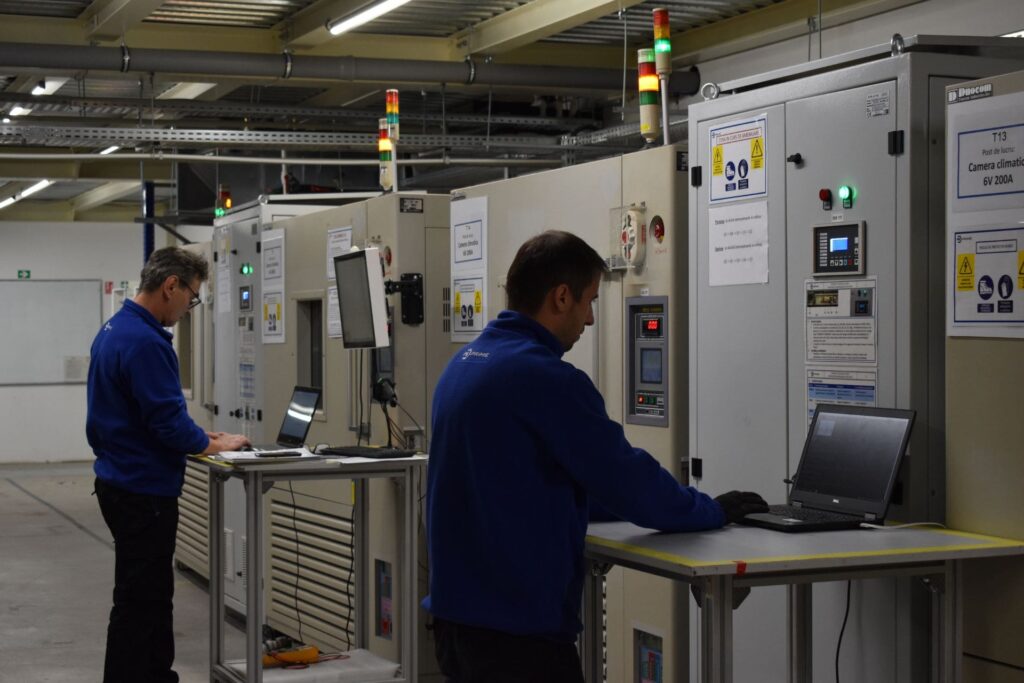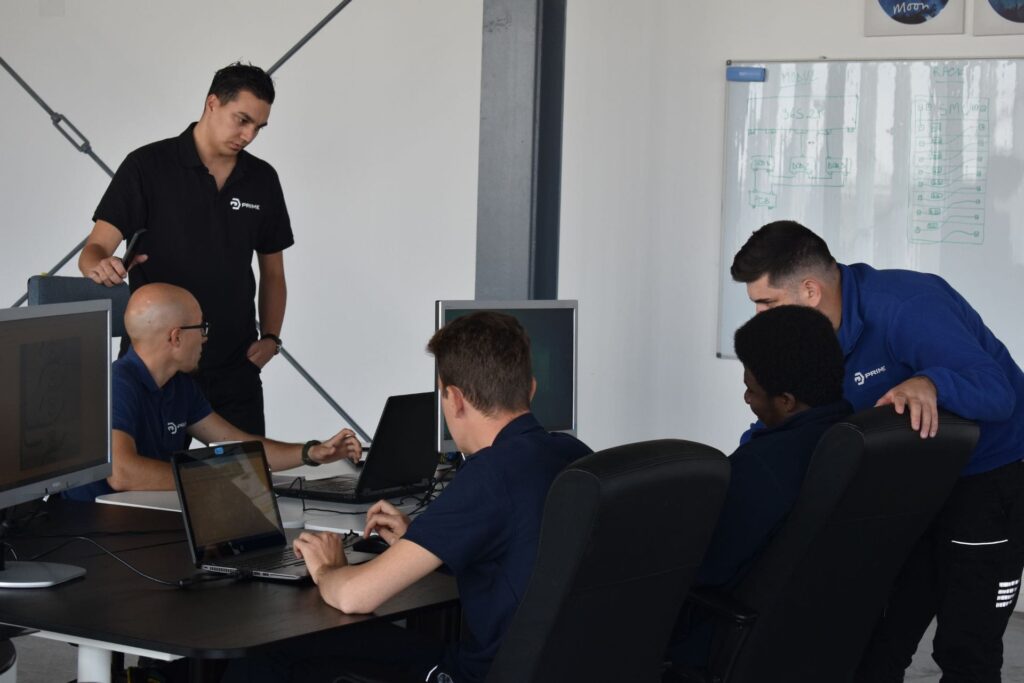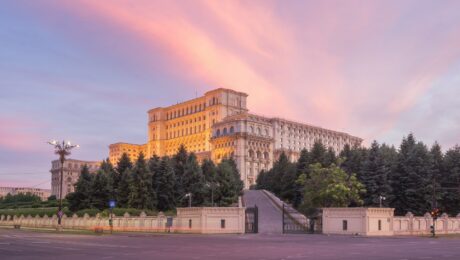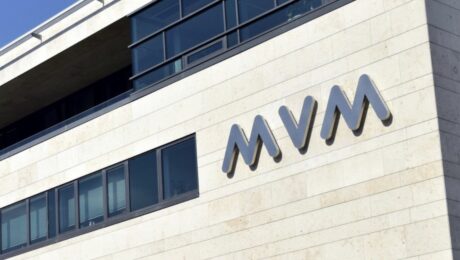Golden Visa Romania: A New Gateway for Investors in Romania
Romania is poised to become the latest European country to introduce a Golden Visa program, officially titled the Residency by Investment scheme, designed to attract substantial foreign investment by offering a renewable five-year residence permit in exchange for an investment of at least €400,000. Registered in Romania’s Senate on October 14, 2025, this bill marks a significant step toward opening Romania’s doors to non-EU investors seeking residence and eventual citizenship in the European Union.
Investment Options and Requirements
Eligible investors must commit at least €400,000 through one of several approved routes:
- Acquisition of real estate in Romania with a minimum value of €400,000, maintained for at least five years.
- Purchase of Romanian government bonds with a maturity of five years or longer.
- Investment in funds authorised by the Romanian Financial Supervisory Authority (ASF).
- Purchase of shares in companies listed on the Romanian stock exchange, worth at least €400,000.
Applicants must demonstrate the legitimate origin of funds, pass strict due diligence checks, and not be flagged on any international sanctions list. These security screenings involve Romania’s Intelligence Services and national anti-money laundering authorities.
Residency Benefits and Family Inclusion
Investors and their family members (spouse and dependent children) who obtain the Golden Visa will receive a five-year, renewable residence permit, enabling them to live, work, and study freely in Romania. The visa does not impose a minimum stay requirement, offering flexibility for travellers and families alike. Moreover, holders enjoy visa-free travel across the Schengen Area once Romania completes its full Schengen accession.
Pathways to Permanent Residency and Citizenship
After five years of maintaining the investment and residence status, Golden Visa holders may apply for permanent residency. Subsequently, they can seek Romanian citizenship under domestic law, which generally requires 8 years of residency but may be reduced to 5 or fewer in cases of economic contribution or other merit factors. The precise timeline for citizenship eligibility under the Golden Visa program remains subject to final legislative details.
Strategic and Economic Significance
Romania’s Golden Visa program is designed to stimulate the economy by attracting foreign capital, supporting real estate development, and creating job opportunities. Positioned as an attractive, cost-effective alternative to similar programs in Western and Southern Europe, it enhances Romania’s appeal as a gateway to the European Union market, with competitive investment thresholds and flexible residence options.
Legislative Outlook and Implementation Timeline
While the draft law has officially entered the legislative process in late 2025, it will require parliamentary approval, potential constitutional scrutiny, and the issuance of implementing guidelines before becoming operational. The program is expected to launch in mid to late 2026.
Romania’s Golden Visa offers a compelling proposition for investors seeking a foothold in Europe. With an accessible investment threshold, strong family-inclusion provisions, and an eventual path to citizenship, it reflects Romania’s growing ambition to attract high-net-worth individuals and position itself as a dynamic economic and cultural hub within the EU. Interested applicants should prepare for rigorous vetting and stay abreast of legislative developments to be well-positioned when the program becomes live.
- Published in News
Import Taxes and Their Impact on Romanian Companies
Dr. Radu Pavel, Coordinating Attorney of the Romanian Law Firm Pavel, Mărgărit and Associates, emphasizes the importance of understanding the commercial and legal implications arising from the new international customs policies, as well as the need for a prompt and well-substantiated response from affected companies, including those in Romania, to safeguard their economic interests and avoid the negative consequences of abusive or incorrect customs decisions.
The Trump Administration has announced that new import taxes will come into force on imports from countries such as China, Mexico, and Canada. These measures will lead to higher prices for goods entering the United States, but their effects will also be felt in Europe, including Romania. Even though our country is not on the blacklist, Romanian companies may be indirectly affected.
How can a Customs Decision Be Challenged in Romania?
In Romania, challenging a decision issued by the customs authority requires filing an administrative complaint, which must be submitted to the authority that issued the decision. This can be done within 45 days of receiving the decision notification or the administrative act that determined the customs obligation.
At this stage, individuals or companies in Romania who consider themselves harmed by imposing an incorrect customs duty, misclassifying goods, or any abusive customs decision may submit a written complaint. The complaint must be substantiated with supporting documents such as commercial invoices, customs declarations or transport documents.
Additionally, those contesting a customs decision may argue that the decision is legally incorrect based on customs regulations or applicable trade treaties. The customs authority will review the complaint and issue a response. If the complaint is rejected, the next step involves taking the matter to court.
Challenging a customs decision in court
Legal action must be filed within 30 days of receiving the response to the administrative complaint. The court will analyze the legality of the customs authority’s decision and verify whether it complies with current legislation. If the trial court rules in favor of the party contesting the customs decision, the authority must take appropriate corrective measures. Otherwise, the dissatisfied party may file an appeal with the Court of Appeal within 15 days from the notification of the ruling. The Court of Appeal will thoroughly assess whether the Tribunal correctly applied the law and may uphold or amend the decision.
„All these international tax updates in Romania can represent a real challenge for a company in Romania. Even if not directly targeted, companies can be indirectly affected through supply chains, increased costs or customs delays. Adapting to this new global context requires a sound understanding of international trade regulations and correctly interpreting applicable legal provisions. With the support of a lawyer for taxes in Romania or a tax attorney in Romania, risks can be significantly reduced, allowing companies to remain competitive and compliant with current requirements,” said Dr. Av. Radu Pavel, Managing Partner of the Romanian Law Firm Pavel, Mărgărit, and Associates.
Types of decisions issued by customs authorities
Customs authorities in Romania may issue several types of decisions, depending on the nature of the control and the findings. The most common are decisions to regularize additional tax obligations. These arise after a customs inspection during which inspectors find that certain customs duties and import taxes in Romania, such as VAT or import duties, were omitted or incorrectly declared and issue a decision imposing the payment of the resulting differences.
Authorities may also issue decisions concerning the application of customs or other import taxes in Romania in cases of suspected undervaluation of goods or incorrect declaration of origin. Additionally, when a company requests the reimbursement of overpaid or erroneously paid customs duties, the authority may reject the request if the legal conditions are not met.
Furthermore, sanctioning decisions, including fines and other contravention measures, may be issued when violations of customs regulations are found. Customs authorities may also implement administrative control and monitoring measures, including the temporary detention of goods or the refusal of entry into the country.
- Published in News
Hungary’s MVM Aims to Acquire E.ON Romania: A High-Stakes Move for Energy and Diplomacy
Romania’s energy landscape faces a pivotal moment following the December 16, 2024, announcement that Hungary’s state-owned energy conglomerate, MVM, intends to acquire a 68% stake in E.ON Energie Romania. Valued at approximately EUR 205 million, this deal would give MVM direct access to around 3.4 million Romanian customers, spanning natural gas and electricity services.
While the acquisition appears to be a straightforward business transaction at first glance, it has triggered intense debates over national security, potential Russian influence, and the broader implications for Romanian-Hungarian relations. Against a background of recent political uncertainties and heated rhetoric from nationalist groups, the future of this acquisition hinges not only on corporate negotiations but also on regulatory and diplomatic manoeuvring.
Spotlight on National Security
A central concern among Romanian officials is the source of MVM’s capital. Although MVM is state-owned by Hungary, some fear that hidden financial channels might be linked to Russian gas transactions, potentially increasing Moscow’s indirect influence in Romania’s critical energy sector. This fear is particularly acute after a major political scandal that saw presidential elections cancelled after alleged foreign interference. While no direct evidence of Russian meddling has surfaced publicly, the heightened sensitivity around such matters is driving calls for thorough oversight of the MVM-E.ON deal.
Energy Minister Sebastian Burduja has repeatedly stressed the need for a diligent review to ascertain whether the acquisition aligns with national security interests. Burduja’s statements signal that the government intends to comb through the proposed deal, examining standard financial and competition regulations and potential security pitfalls.
Financial and Market Scrutiny
Equally contentious is the acquisition’s price tag—approximately EUR 205 million. Critics, including some Romanian officials, argue that the valuation surpasses E.ON’s actual market worth, pointing to the possibility that MVM might be “overpaying” for strategic or political reasons rather than commercial logic alone. Such speculation intensifies the scrutiny surrounding the origins of MVM’s capital and the long-term strategic goals behind the purchase.
Beyond market valuation, Romanian authorities are looking at competition compliance and consumer impact. If MVM acquires a substantial share of Romania’s energy distribution, it could reshape pricing, investment priorities, and overall market dynamics. Although the Romanian government typically encourages foreign investment, particularly in infrastructure, the complexity of this deal has put an unprecedented spotlight on balancing commercial benefits with national and regional security considerations.
Rising Nationalist Backlash
Not all the opposition originates from government corridors. Romanian nationalist voices have labelled the acquisition as “treason,” urging officials in Bucharest to block the deal outright. They view a Hungarian state-owned enterprise controlling a critical piece of Romania’s energy supply as a direct threat to national sovereignty. These calls have amplified tensions that occasionally flare up between the two neighbours, evoking historical grievances and fears of undue Hungarian influence.
Romania’s ongoing sensitivity to external interference is a complicating factor in the public debate. Though devoid of concrete proof of Russian involvement, the recently nullified presidential election has sharpened the public’s awareness of how foreign players could potentially sway domestic outcomes—especially in a crucial sector like energy.
Diplomatic Dimensions: The Schengen Connection?
A notable dimension of this story is Hungary’s endorsement of Romania’s bid to join the Schengen Area. Joining Schengen remains a strategic priority for Romanian policymakers, as it would facilitate cross-border travel and strengthen the country’s integration within the European Union. Hungarian officials have repeatedly supported Romania’s Schengen ambitions—leading some observers to speculate that the MVM-E.ON deal could be part of a broader quid pro quo.
Though neither government has confirmed such a link, the timing feeds speculation that the transaction might be a diplomatic bargaining chip. If Romania approves the acquisition with limited objections, Hungary’s vote of confidence for Romania in EU forums may solidify. Conversely, if Romanian regulators either stall or block the deal, it could raise questions about whether Budapest might withdraw its support on the Schengen matter.
Potential Outcomes, What They Mean for Romania
Regulatory Hurdles
Romanian competition and national security authorities could impose stringent conditions or veto the acquisition. Such measures might demand full disclosure of MVM’s financial backers or obligations to invest in local infrastructure to mitigate security risks.
Energy Market Realignment
MVM’s expanded footprint could reshuffle Romania’s gas and electricity sectors if the deal moves forward. This could affect pricing, regional energy cooperation, and Romania’s relationships with other European suppliers.
Diplomatic Fallout or Opportunity
A streamlined approval might be cast as a gesture of goodwill, aligning with Hungary’s overt support for Romania’s Schengen ambitions and potentially reinforcing bilateral ties.
A drawn-out review or rejection could invite criticism from Hungary and fuel nationalist sentiment within Romania—potentially complicating broader European negotiations.
Public Trust and Transparency
Amid ongoing concerns about foreign interference and manipulative media campaigns, Romanian officials will be under intense pressure to ensure transparency. A rigorous review process could bolster public trust, regardless of whether the deal proceeds.
The MVM-E.ON acquisition drama underscores the intricate interplay of economics, security, and diplomacy in Romania’s evolving landscape. With the high stakes, Romanian regulators and political leaders are walking a tightrope—aiming to attract foreign investment while shielding critical infrastructure from undue external influence.
Simultaneously, the country’s desire to join Schengen introduces an extra layer of diplomatic complexity. Whether or not Romania decides to give MVM the green light, the outcome will reverberate well beyond corporate boardrooms, potentially shaping Romania’s European integration trajectory and the region’s energy equilibrium for years to come.
At Lobby Romania, we remain committed to delivering in-depth analysis of the nation’s most pressing issues. Stay connected for further updates on how this deal unfolds—and what it means for Romania’s future in Europe’s energy and political arenas.
- Published in News
Eyes on Romania: Investors Grew the M&A Market above USD 7 Billion
Romania remains on investors’ radars despite the rising cost of money and inflation. In value, the M&A market exceeded 7 billion dollars in 2023 but was massively supported by two mega transactions. This year is still under the sign of growth, Romania News reports.
The takeover of Profi by Ahold Delhaize, the owner of Mega Image, for $1.4 billion and the sale of Enel Romania to the Greeks from PPC for $1.3 billion are the essential local transactions and the two mega transactions (worth over 1 billion dollars) from last year. Also, in 2023, there were three other agreements of 200-300 million dollars each, with medium-sized transactions vital for the health of the M&A market.
The steps in a merger and acquisition are complex, but with the help of specialized lawyers, investors overcome any legal challenges.
In 2023, 241 transactions were initiated in Romania, with a total value estimated at almost 7.1 billion dollars, according to an analysis by the audit and consulting company EY. It is about the total value of the market, i.e. both transactions with communicated and uncommunicated value, but estimated by EY, are taken into account.
In terms of volume, the market decreased slightly compared to the maximum reached in 2022 – when 257 agreements were signed, 16 more than last year – but in terms of value, it is the best year (plus 6%).
The data show that Romania remains on the radar of investors in the M&A market despite the rising cost of money and still high inflation, factors that have led to a cautious approach, especially among buyers. However, in value, the market exceeded 7 billion dollars because two mega transactions supported it.
The takeover of Profi by Ahold Delhaize, the owner of Mega Image, for $1.4 billion and the sale of Enel Romania to the Greeks from PPC for $1.3 billion are the most critical local transactions and the two mega transactions (worth over 1 billion dollars) from last year.
The corporate and M&A market is also expected to grow in Romania this year. The country is attractive to investors, and the economic outlook for 2024 is somewhat optimistic, favouring the decision to invest.
- Published in News
EIT Innoenergy Becomes Minor Shareholder at Prime Batteries Technology after EUR 1 Billion Investment
The European conglomerate EIT InnoEnergy, which includes banks and corporations from all across Europe, including ING, Volkswagen, and Siemens, co-founded in 2008 with the European Union, makes a sizeable investment in the Romanian energy storage solution supplier Prime Batteries Technology. The company has declared an investment of more than one billion euros to enhance the manufacture of batteries and storage systems.
As ValahiaNews reports, EIT InnoEnergy formally announced its purchase of shares from Prime Batteries Technology in Ilfov on Thursday in Brussels. Florin Spataru, the Economy Minister, Adina Vâlean, the European Commissioner for Transport, and several MEPs from Romania attended the event.
„Central and Eastern Europe is becoming an important player in the energy transition and battery production and we are glad to see a Romanian company developing”
Adina Vâlean, European Commissioner for Transport

The existing Prime Batteries Technology factory in Cernica will receive an investment of about 200 million euros to increase the yearly output of the present level of 2GWh. According to business leaders’ predictions, the group wants to grow this capacity to 8 GWh, boosting the investment to more than 1 billion euros by 2026.

„A 30–35% component of the funding will come from investment funds focused only on renewable energy causes, with the remaining amount funded by loans. Additionally, we sent a memo to the Ministry of Energy, and we are eagerly awaiting a response […..]”.
Adrian Polec, Stakeholder at Prime Batteries Technology

EIT InnoEnergy encourages innovation in several different areas. These fields include energy storage, transportation and mobility, renewable sources, and sustainable buildings and communities, all of which are supported by the company’s trustworthy network of more than 1200 partners and 29 shareholders. The portfolio, which has over 180 businesses, will have made 72.8 billion euros in revenue and avoided 1.1 gigatons of carbon dioxide from entering the environment by 2030.
- Published in News






